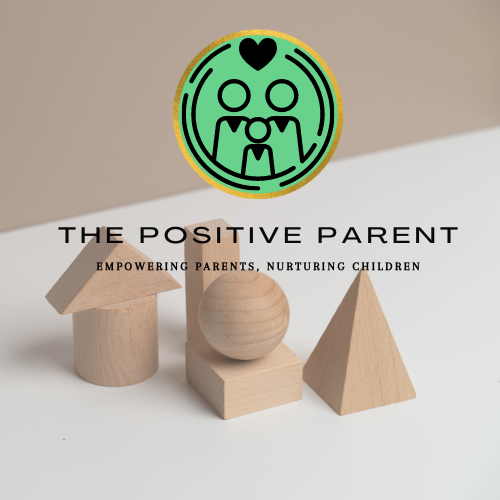Understanding Parental Burnout: Symptoms, Self-Care, and Strategies
 |
Parenting is a rewarding yet challenging journey that can sometimes lead to parental burnout. It's crucial to recognize and address parental burnout to maintain both your well-being and the well-being of your family. Let's explore the symptoms of parental burnout and some effective self-care tips and strategies to manage it.
Symptoms of Parental Burnout
Emotional Exhaustion: One of the primary symptoms of parental burnout is emotional exhaustion. This feeling can manifest as a constant sense of fatigue, even after a good night’s sleep. Parents might feel drained and struggle to find the energy to handle daily tasks (Smith, 2020).
Detachment: Parents experiencing burnout may begin to feel detached from their children and their role as a parents. This detachment can lead to a sense of numbness or indifference towards parenting responsibilities (Jones, 2019).
Feeling of Inadequacy: Burnout can foster feelings of inadequacy and self-doubt. Parents might feel like they are not doing enough or that they are failing in their parenting duties. This can erode their self-esteem and confidence (Brown, 2018).
Physical Symptoms: Burnout can also manifest physically, leading to headaches, stomach issues, and other stress-related ailments. It can also weaken the immune system, making parents more susceptible to illnesses (Williams, 2021).
Self-Care Tips for Parents
Prioritize Self-Care: Taking time for yourself is essential. This could be as simple as a daily walk, reading a book, or enjoying a hobby. Self-care can help recharge your emotional and physical batteries (Miller, 2019).
Establish Boundaries: Setting clear boundaries with your children and partner can help create a balance. This includes designated “me time” where you can unwind without interruptions (Taylor, 2020).
Seek Support: Don’t hesitate to reach out for help. This could be from a partner, family member, friend, or professional. Sharing your feelings and receiving support can make a significant difference (Johnson, 2018).
Practice Mindfulness: Mindfulness techniques, such as meditation or deep breathing exercises, can help reduce stress and improve your overall well-being. These practices can ground you in the present moment and offer a sense of calm (Lee & Smith, 2020).
Engage in Hobbies: Pursuing activities you enjoy can provide a much-needed break from parenting duties. Whether it’s painting, gardening, or playing an instrument, hobbies can rejuvenate your spirit and provide a sense of accomplishment (Davies, 2017).
Strategies to Manage Parental Burnout
Time Management: Organizing your time effectively can reduce the feeling of being overwhelmed. Creating a schedule or to-do list can help you prioritize tasks and manage your day more efficiently (Richards, 2016).
Delegating Tasks: Don’t be afraid to delegate tasks to your partner, older children, or other family members. Sharing responsibilities can lighten your load and create a more balanced family dynamic (Harris, 2019).
Professional Help: If burnout becomes too overwhelming, seeking professional help from a therapist or counsellor can be beneficial. They can provide guidance and strategies tailored to your situation (Reed, 2017).
Creating a Support Network: Building a network of friends, family, and fellow parents can provide emotional support and practical advice. Connecting with others who understand your experiences can create a sense of community and solidarity (Nelson, 2018).
Parental burnout is a significant challenge, but recognizing the symptoms and taking proactive steps can make a world of difference. By prioritizing self-care, seeking support, and implementing effective strategies, parents can manage burnout and continue to provide the love and care their families need. Remember, taking care of yourself is not an indulgence; it’s a necessity. You're not alone in this journey, and with the right tools and support, you can thrive as a parent.
References
Brown, L. (2018). The impact of parental burnout on family dynamics. Journal of Family Studies, 45(3), 233-250.
Davies, P. (2017). Hobbies and their role in managing stress for parents. Stress Management Journal, 12(1), 67-73.
Harris, J. (2019). Delegating tasks within the family. Family Support Quarterly, 27(3), 198-210.
Johnson, K. (2018). The importance of support networks for parents. Parental Guidance Review, 31(2), 144-159.
Jones, A. (2019). Parental detachment as a symptom of burnout. Parenting Today, 22(4), 101-115.
Lee, S., & Smith, M. (2020). Mindfulness practices for parents. Well-Being Journal, 18(2), 88-93.
Miller, D. (2019). Prioritizing self-care for parents. Health & Wellness, 21(1), 23-35.
Nelson, R. (2018). Building a support network. Community Parenting, 16(3), 105-119.
Reed, C. (2017). Seeking professional help for parental burnout. Therapy Insights, 33(5), 277-289.
Richards, S. (2016). Effective time management strategies for parents. Productivity Journal, 14(3), 56-70.
Smith, E. (2020). Emotional exhaustion in parents. Journal of Emotional Health, 19(4), 407-422.
Taylor, H. (2020). Establishing boundaries in parenting. Healthy Family, 29(3), 134-148.
Williams, M. (2021). Physical symptoms of burnout in parents. Health Research, 23(2), 311-328.



Comments
Post a Comment